Why You Don’t Need Event Planning Certification – yet
Unlike many other professions, event planning doesn’t follow the traditional career path of study, qualify, entry-level job.
With event planning, even if you’ve studied, it doesn’t mean you are qualified.
That’s because there is no formal qualification required to work in event planning. How qualified you are for an event planning job is a discretionary decision made by the person hiring you, and is usually based on the skills you can demonstrate and the experience you have obtained; rather than what you’ve studied.
In event planning, far greater emphasis is placed on experience than education.
Therefore, unlike many other professions that require you to become certified before you can practice, event planning requires you to have worked in the industry for several years before you can apply for certification.

The minimum amount of full-time work experience required to apply for certification is two years, and that is when combined with an industry-relevant bachelor’s degree. Without the degree the minimum is three years’ experience. Therefore, at the beginning of your career, event planning certification is not something you need to be too concerned with.
Read my personal thoughts on event planning certification at the end of this article under Does an Event Planner Need to be Certified?
certificate v certification
I’ve noticed that there are quite a few courses available, particularly online, that give the impression that completing their course will make you a ‘certified’, ‘registered’ or ‘professional’ event planner. These courses usually offer some form of certificate / diploma.
However, there is a difference between ‘certification’ and a ‘certificate.’ A certificate is issued by a school to confirm that you have completed an event-planning course. Whereas, certification is issued by a professional association, such as ILEA (International Live Events Association formerly Known as ISES), and results in an industry-recognized designation, such as CSEP (Certified Special Event Professional).
Therefore, despite what some schools misleadingly claim, obtaining a certificate issued by an individual school does not mean you are a certified event planner as recognized by the industry—nor does it make you a professional event planner. There is also no such thing as a registered event planner.
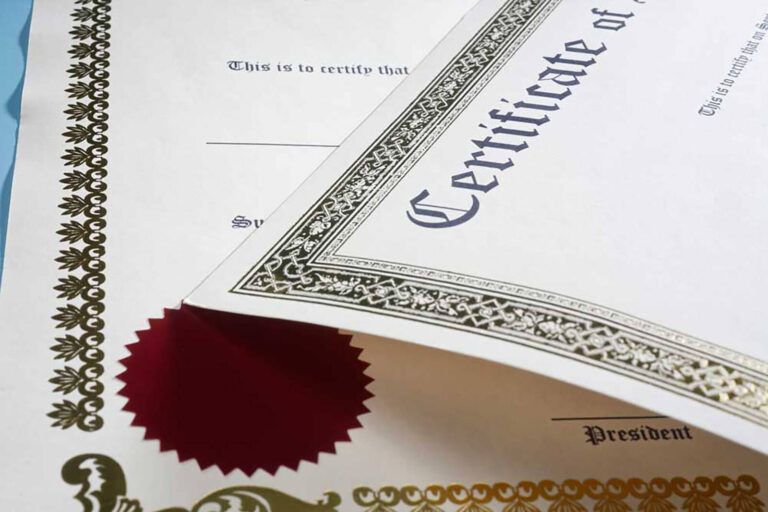
Industry-Recognized Event-Planning Certifications
Industry-recognized certifications are those issued by professional associations, not schools, and result in a designation you can put after your name. The three most common, specific to event / meeting planners, are:
CSEP: Certified Special Events Professional
The CSEP designation is an internationally recognized certification for special event planning. Issued by ILEA, the International Live Event Association (formerly known as ISES, International Special Event Society) it is considered the hallmark of professional achievement in the special events industry and recognizes event professionals who have successfully demonstrated the knowledge, skills and ability essential to planning special events.
Certification takes the form of an online examination and registration and fees currently cost $600 USD. To be eligible to apply a candidate must have a minimum of 3 years of full time professional employment in the special events industry. Documentation of work experience is required.
For more information see www.ileahub.com.
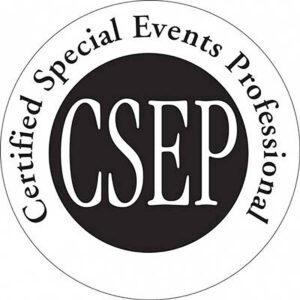
CMP: Certified Meeting Professional
The CMP designation is the foremost internationally recognized certification of the meetings, conventions, and exhibitions industry. Issued by the Convention Industry Council, it evaluates the competency of meeting professionals and recognizes individuals who have achieved the industry’s highest standard of excellence.
Certification takes the form of an application to demonstrate eligibility followed by an ‘in-person’ examination at one of more than 450 testing centers in 166 countries. Fees are currently $250 USD for the application and $450 USD for the examination.
To be eligible to apply a candidate must be currently or recently employed within the industry (within the previous 12 months) with a minimum of 3 years qualifying full time work experience. Alternatively a candidate can have 2 years qualifying full time work experience if they also hold a bachelor’s degree or international equivalent in meeting, event, exhibition, and hospitality / tourism management. In addition to the above requirements, all candidates must have 25 clock hours of industry-related continuing education within the past 5 years or have completed a supervised internship with a minimum of 200 hours of work experience.
For more information see www.conventionindustry.org.
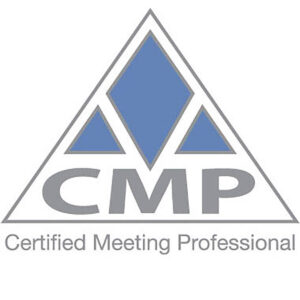
CMM: Certificate in Meeting Management
The CMM is the internationally recognized designation for management-level meeting and event professionals. It is the highest professional education achievement in the meetings industry. Issued by MPI, the Meeting Professionals International association, the focus of the certification is to provide continuing education for experienced and highly accomplished members of the global meeting industry and is the perhaps the most prestigious designation available.
Certification takes the form of a 5 ½ day on-location program which includes group coursework for 2 evenings plus pre-course work. To be eligible, candidates must have a minimum of 10 years of experience in the industry.
For more information see www.mpiweb.org.
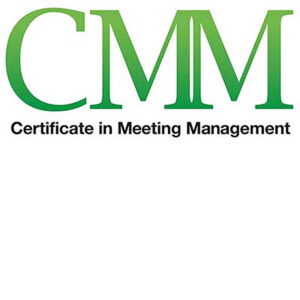
Niche / Sub-Sector Designations
While the certifications above are the most common for event / meeting planners, others exist that are specific to:
a. sub-sectors of the events industry, such as:
CEM: Certified in Exhibition Management
The Certified in Exhibition Management (CEM) designation, issued by the International Association of Exhibitions and Events, is a globally recognized designation that demonstrates the highest professional standard throughout the exhibition and event management arena. For more info see http://www.iaee.com/.
DMCP: Destination Management Certified Professional
The Certified Government Meeting Professional designation (CGMP), issued by the Society of Government Meeting Professionals, is designed for planners and suppliers whose work is governed by the rules and regulations of the federal government. For more info see www.sgmp.org.
b. niche areas of the industry, such as:
CMP-HC: Certified Meeting Professional Health Care
Issued by the Convention Industry Council, the Certified Meeting Professional Health Care designation is a subspecialty of the CMP aimed at professionals who produce healthcare-focused meetings. For more info see www.conventionindustry.org.
CGMP: Certified Government Meeting Professional
The Certified Government Meeting Professional designation (CGMP), issued by the Society of Government Meeting Professionals, is designed for planners and suppliers whose work is governed by the rules and regulations of the federal government. For more info see www.sgmp.org.
c. event planning related roles, such as:
CFBE: Certified Food & Beverage Executive
Issued by the American Hotel & Lodging Educational Institute, the Certified Food and Beverage Executive (CFBE) designation is the most prestigious certification available to a food and beverage executive working in the hospitality industry. For more info see www.ahlei.org.
CFE: Certified Facilities Executive (venue management).
Issued by the International Association of Venue Managers, the Certified Facilities Executive designation is aimed at professionals in the venue management industry. For more info see www.iavm.org.
Beware of Other Designations
You may come across other event-planning designations, typically offered by online courses and other lesser-known organizations. However, you should be aware that these are often of questionable value.
For example, an organization called The International Society of Meeting Planners, offers designations such as CEP: Certified Event Planner and RMP: Registered Meeting Planner, which can be obtained simply by filling in an application form and paying $210 to become a member. There is no study, coursework, or exam involved.
I would question the value of a designation that can be obtained simply by paying a membership fee.
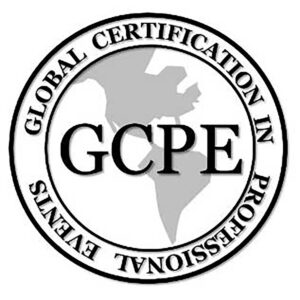
Proprietary Designations
Similarly, many online courses offer their own designations, such as the GCPE: Global Certification in Professional Events offered by the Institute of Event Management, or the IEPP™: International Event Planning Professional issued by the QC Event School.
However, these are not industry-recognized designations as they are proprietary to these individual schools, rather than being issued by a professional association. As such, many employers will not recognize these designations and, therefore, I would argue their value is questionable.
Most employers in the event industry are all too familiar with the handful of professional industry-recognized designations that exist specifically for event planners, i.e. CSEP, CMP, and CMM. Therefore, I suspect they might treat any job seeker brandishing a non-recognized designation with suspicion.
As an employer and an industry professional myself, I know it would make me question whether the candidate is trying to mislead clients/employers, or whether they themselves have been misled into believing that they hold an industry-recognized professional certification.
In my opinion, proprietary designations are a red flag and can undermine the credibility of a school’s training.
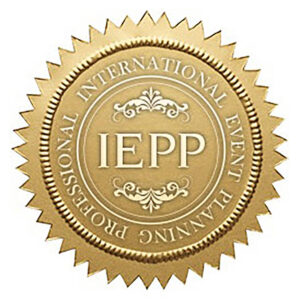
Does an Event Planner Need to be Certified?
Certification is not mandatory, although many planners choose to obtain it in order to demonstrate their credentials. Once achieved, it’s a testament to your expertise—like a badge of honor. It demonstrates to clients and employers that you have attained a degree of authority in the business and learned the standards of best practice. That said, plenty of planners simply don’t bother with certification—myself included.
Why I Don’t Have Event Planning Certification
I’ve worked in event planning for 20 years, producing events for high-profile clients; celebrities such as Elton John, Sarah Jessica Parker, and Stella McCartney, as well as global brands, such as Montblanc, Canon and Barbie. I have my own business, I’ve won 30 industry awards, been a guest speaker at numerous industry events, given guest lectures at university event-management degree courses, and been invited to judge several industry awards and competitions. Yet I’ve simply never felt the need to obtain the CSEP (Certified Special Event Professional) certification.
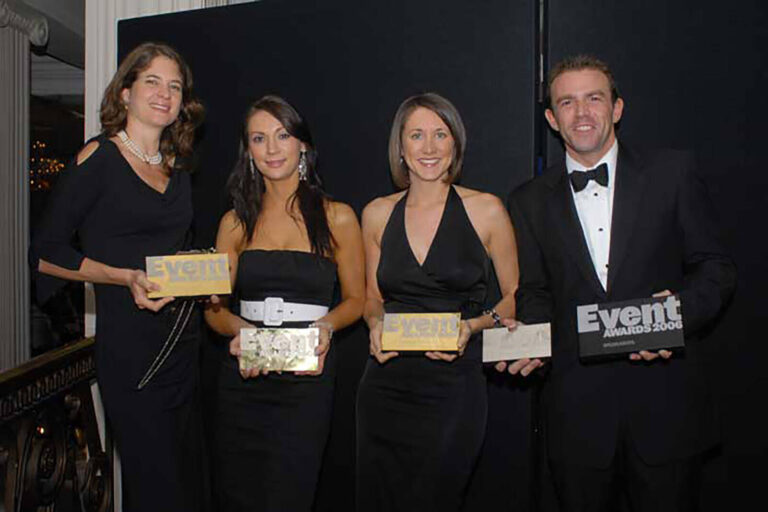
I’m confident that the work I do is of a high standard and I’ve always preferred to let the work speak for itself. I’ve also never had a single client or employer in my entire career ask me whether I had any sort of official qualification or credential—even when I worked in corporate events for the investment bank Credit Suisse. They’ve always been more concerned with seeing my portfolio of past events, which is the real testament to my skills, experience, and proficiency.

Experience Trumps Qualifications
Some employers—particularly in meeting planning—may favor a candidate with a certification such as the CMP (Certified Meeting Professional). It definitely communicates a level of experience and a commitment to your profession. But even then, they’re going to be far more concerned with the experience you have.
If you have great experience, in all likelihood, they’re not going to care whether you’ve got a certification or not. Experience always trumps qualifications in the event industry. Your resume will already have shown them what you can do, rather than a certification telling them what you can do.
The difference between showing and telling is quite an important distinction to make. Hence why experience is so much more important than study in this industry.
Demonstrating Best Practices
The other thing to consider is that, in reality, many people obtain certification and then do not continue to uphold the standards and practices they’ve been taught. Much like when you take your driving test and you’re taught to keep both hands on the wheel in a 10 and 2 position. Does anyone really continue to do that after the driving test?
I’ve seen some shockingly poor practices by certified event planners. People often obtain them with the best of intentions, but in some cases they just don’t follow through and maintain the best practices they’ve been taught. If I were the client or employer, I’d much rather someone demonstrated the standards of best practice in their actual body of work, rather than relying on a certification they might have obtained up to five years ago. Don’t tell me, show me.
When Certification Can Be an Advantage
Sometimes it can be worth getting certified just to give yourself that extra professional edge. You may find yourself down to the final two for an interview, against an equally strong candidate, where there is little difference between the two of you. In situations like that, sometimes it can be the slightest thing that will push the balance in one candidate’s favor—and that might be which one has obtained an official certification.
Ultimately, you shouldn’t be too concerned about certification at the beginning of your career. Once you have a few years’ experience and understand how the industry, the jobs market, and the hiring process works, then you can decide whether obtaining certification is right for you. By then, your career might be advancing perfectly well and you decide you don’t need it. My own situation is testament to the fact that you can have a perfectly successful career in event planning without being certified.

In The Next Section…
03 Is an Event Planning Course right for me?
Most websites about becoming an event planner are just trying to sell you event planning courses. Hear from employers, recruiters, and experienced professionals about why you don’t need to take an event planning course.